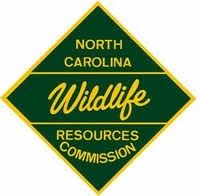 Courtesy of the N.C. Wildlife Resources Commission. In the rush to get on the water, don’t get in the way, don’t get upset and don’t get in trouble. Wildlife Officers with the N.C. Wildlife Resources Commission are reminding everyone to practice proper boat ramp etiquette this summer, be patient with others and obey regulations set for public boating access areas. Their recommendations:
Courtesy of the N.C. Wildlife Resources Commission. In the rush to get on the water, don’t get in the way, don’t get upset and don’t get in trouble. Wildlife Officers with the N.C. Wildlife Resources Commission are reminding everyone to practice proper boat ramp etiquette this summer, be patient with others and obey regulations set for public boating access areas. Their recommendations:
Pre-Launch at Home
File a float plan with a responsible person.
Make sure you have all required safety equipment onboard.
Check the charge on fire extinguisher(s).
Check that your registration and decal is up-to-date and your registration card is onboard.
Make sure all running gear, lights, etc., are working and the drain plug is in.
Pre-Launch at Staging Area
Remove covers and straps before you get in line.
Have gear and equipment already stowed onboard.
Disconnect any wiring between your trailer and boat.
Remove the tarp and straps that secure your boat to the trailer.
Put your keys in the boat console.
Launching
Wait your turn. Get in line without blocking or cutting off others.
Connect your bow line.
Ease your boat into the water and be watchful of the dock or pier and other boats.
If possible, park your vehicle and trailer while someone moves the boat away from the ramp.
Observe no-wake zones and be cautious.
Recovery
Loading onto trailers is in order of tow vehicles in line, not waiting boats.
Carefully back trailer into the water.
Move the boat onto the trailer, hook the winch line and securely position.
Steadily accelerate and slowly pull the trailer forward; be watchful of vehicles and people.
Return to the staging area to transfer gear, secure straps and tarps.
Wildlife Officers are charged with enforcing the boating laws and regulations on the waters of North Carolina and may stop any vessel for safety checks or violations. In the course of their duties, these law enforcement officers will patrol over 5,000 square miles of inland streams, rivers, lakes and coastal waterways and 220 public boating access areas.
“The other advice I would add is to respect others and please don’t litter,” said Erik Christofferson, chief of the Division of Engineering Services of the N.C. Wildlife Resources Commission. “Our division maintains free public boating access across the state, opening new ones and improving existing ones all the time. Cooperation from the boating community is essential to the upkeep and cleanliness of boat ramps, and ultimately everyone’s safety.”
For more information on boating safety, regulations and title and registration, go to http://www.ncwildlife.org/Boating_Waterways/index.htm.
About N.C. Wildlife Resources Commission
Since 1947, the North Carolina Wildlife Resources Commission has been dedicated to the conservation and sustainability of the state’s fish and wildlife resources through research, scientific management, wise use, and public input. The Commission is the state regulatory agency responsible for the enforcement of fishing, hunting, trapping and boating laws and provides programs and opportunities for wildlife-related educational, recreational and sporting activities. To learn more, visit www.ncwildlife.org.
